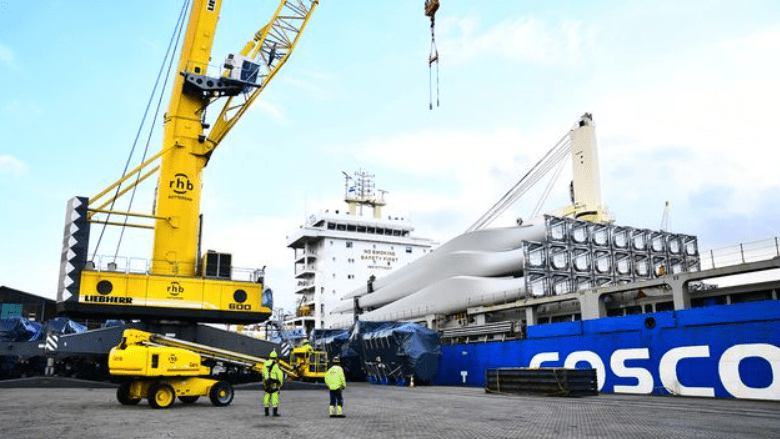
Oorlog Oekraïne raakt overslag in haven

Foto: Havenbedrijf Rotterdam/Danny Cornelissen
De overslag in de haven van Rotterdam valt in het eerste kwartaal van dit jaar 1,5 procent lager uit. De daling valt toe te schrijven aan de oorlog in Oekraïne.
In de eerste drie maanden van 2022 kwam de overslag uit op 113,6 miljoen ton. Dat is 1,5 procent lager dan de 115,2 miljoen ton die in dezelfde periode een jaar eerder werd gerealiseerd.
Afnemende vraag
Vooral de overslag van minerale olieproducten viel terug, met 20,5 procent tot 13,5 miljoen ton. Dit komt doordat er minder stookolie vanuit Rusland wordt aangevoerd. Ook de overslag van ijzererts en schroot nam sterk af (-19,5 procent) naar 5,6 miljoen ton. De Duitse staalindustrie had door de hoge energiekosten en een afnemende vraag naar staal minder vraag naar deze grondstoffen. Wel is er meer LNG overgeslagen (+77 procent), maar hierbij gaat het om relatief kleine hoeveelheden: 2,7 miljoen ton. De overslag van containers daalde met 1,4 procent naar 3,6 miljoen TEU.
Oorlog Oekraïne
Het Havenbedrijf Rotterdam noemt de invloed van de oorlog in Oekraïne op deze overslagcijfers nog beperkt. Dit omdat de inval pas eind februari plaatsvond. Inmiddels wordt de impact van de sancties in bijna alle sectoren gevoeld, stelt het havenbedrijf. “Hoewel het verdere verloop niet te voorspellen is, verwachten we dat de ontwikkelingen in Oekraïne en de sterk verslechterde relatie tussen Rusland en veel andere landen ook in de rest van jaar van invloed zullen zijn op de overslagvolumes”, zegt ceo Allard Castelein van het Havenbedrijf Rotterdam.
Zie ook: Amper impact sancties op haven Rotterdam
English translation
Ukraine war hits port throughput
Transhipment in the port of Rotterdam dropped by 1.5 percent in the first quarter of this year. The decrease can be attributed to the war in the Ukraine.
In the first three months of 2022, transhipment amounted to 113.6 million tonnes. This is 1.5 percent lower than the 115.2 million tonnes that was realised in the same period a year earlier.
Decreasing demand
In particular, the transhipment of mineral oil products dropped by 20.5 percent to 13.5 million tonnes. This was due to the fact that less fuel oil was supplied from Russia. Also the transhipment of iron ore and scrap decreased considerably (-19.5 percent) to 5.6 million tons. The German steel industry had less demand for these raw materials due to high energy costs and a decreasing demand for steel. The volume of LNG transhipped did increase (+77%), but this involved relatively small quantities: 2.7 million tonnes. Container transhipment declined by 1.4 percent to 3.6 million TEU.
Invasion
The Port of Rotterdam Authority considers the influence of the war in the Ukraine on these transhipment figures to be limited. This is because the invasion only took place at the end of February. Meanwhile, the impact of the sanctions is being felt in almost all sectors, the Port Authority states. “Although further developments cannot be predicted, we expect that the developments in Ukraine and the strongly deteriorated relationship between Russia and many other countries will also influence transhipment volumes in the rest of the year”, says CEO Allard Castelein of the Port of Rotterdam Authority.









